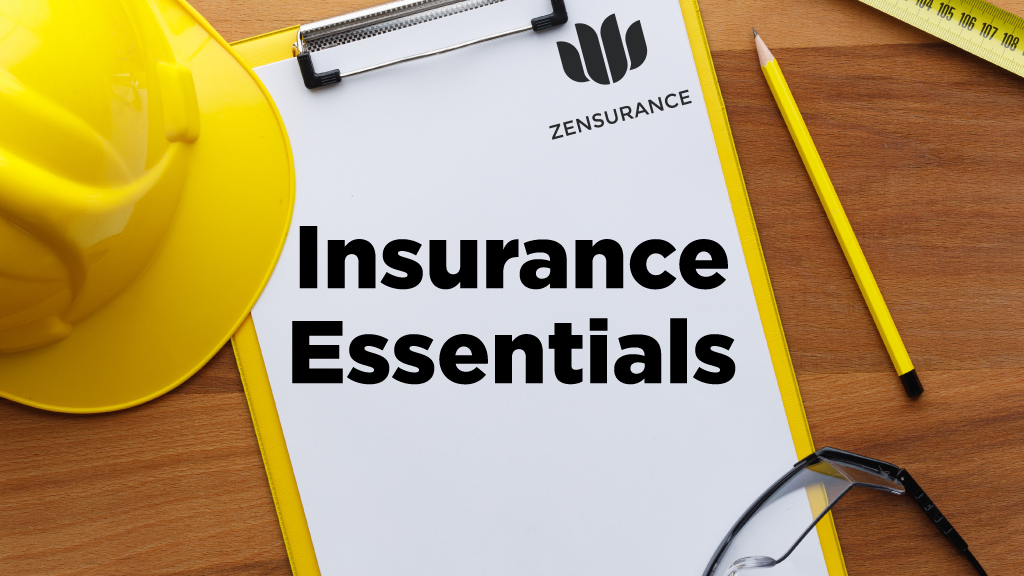Taking the time to talk to a business insurance broker before renewing an expiring contractor insurance policy may help you save money. More importantly, it’ll help ensure the policy you get will cover you if you need to file a claim. Here’s why.
Unlike a private-passenger car insurance policy for your family vehicle, a contractor or construction insurance policy does not automatically renew itself if you do nothing about it.Â
That leaves you with two options: renew your last policy with whatever insurance company you bought it from without making any changes or talk to a licensed business insurance broker about how your company or services have evolved in the past 12 months.
On the one hand, renewing an expiring policy without reviewing or making changes saves time, and your annual premium may or may not rise from one year to the next based on your previous application. But on the other hand, doing so can expose you to financial liabilities if that policy isn’t updated to reflect how your construction business has changed.
Six reasons why reviewing your policy before renewal matters
You’ll typically receive a notice from your broker or insurer 30 to 60 days in advance of your policy’s expiration. Here are six things to consider before you renew it:
1. Your services have changed
Are you providing new or additional services? Has the size of your warehouse expanded, or have you increased the amount of raw materials you keep in storage? Think about how your business has changed in the past 12 months.
2. You moved your office to a new location
Where your office, warehouse or storage compound is located is one of many factors insurers consider when assessing your policy’s cost. So, if you’ve moved or plan to in the not-too-distant future, or if you’ve renovated your existing place of business, make sure your broker knows in advance. Failing to do so could affect whether or not commercial property insurance coverage will pay out if, for example, a fire damages the building, contents and materials you have in storage.
3. You acquired new equipment and tools
Anytime you purchase new computing systems, heavy equipment, or other transportable gear like handheld tools, your policy needs to account for them. For instance, tools and equipment insurance covers heavy construction equipment such as bulldozers and backhoes as well as hand tools and safety gear from theft, vandalism or fire and water damage.Â
4. You hired more employees
If you own a construction or renovation company and have hired full- or part-time employees, you might need to add employers’ liability coverage to complement your provincial workers’ comp insurance.
The more employees you have, the greater the risk you face. However, this might not apply to you if you hire subcontractors, but ensure any subcontractor you hire is licensed and insured.
5. You’re conducting more business online
This is the construction business, right? You’re not building or renovating websites (if you are, that’s pretty unique). However, you probably have a website, exchange emails with customers and partners, and issue or receive electronic invoices. That’s reason enough to include cyber liability insurance in your overall policy.
6. Your annual revenue has increased or decreased
If business is booming and your revenues (actual or projected) are on the rise, or if your revenues have decreased because of the state of the economy or other factors, that’s another reason to discuss what’s happening with a broker. Insurers do consider a company’s or contractor’s annual and projected revenue when pricing policies. Moreover, if your revenue is growing, your business interruption coverage’s loss of income limit needs to increase. Conversely, if revenue is down, the opposite may be required.
Other changes to your contractor business that may affect your coverage
There may be additional factors that could affect your coverage or annual premium. For instance:
If you’ve added new security and surveillance measures to your business property, such as 24/7 monitored cameras and alarms. Insurers recognize the proactive efforts their clients make to protect their properties. Doing so can help keep your premium low.
If you and your employees work primarily from home instead of in an office. As an employer, you still bear the responsibility of employers’ liability even if your employees work remotely.
You’re now offering your services in another province other than where your company is located.Â
Nothing ever stays the same. And contractors’ and construction companies’ services often evolve year-over-year. By consulting a business insurance broker, you can ensure you’re adequately protected if something goes wrong before you renew your policy; best of all, you might also save a few bucks.
Jon Hogg is a licensed broker and team lead, renewals at Zensurance, şÚÁĎłÔąĎÍř’s leading source for small business insurance. Get a free quote for your insurance needs by visiting.






Recent Comments
comments for this post are closed